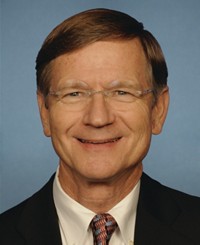Advertisement
Grab your lab coat. Let's get started
Welcome!
Welcome!
Create an account below to get 6 C&EN articles per month, receive newsletters and more - all free.
It seems this is your first time logging in online. Please enter the following information to continue.
As an ACS member you automatically get access to this site. All we need is few more details to create your reading experience.
Not you? Sign in with a different account.
Not you? Sign in with a different account.
ERROR 1
ERROR 1
ERROR 2
ERROR 2
ERROR 2
ERROR 2
ERROR 2
Password and Confirm password must match.
If you have an ACS member number, please enter it here so we can link this account to your membership. (optional)
ERROR 2
ACS values your privacy. By submitting your information, you are gaining access to C&EN and subscribing to our weekly newsletter. We use the information you provide to make your reading experience better, and we will never sell your data to third party members.
Policy
Congress surprises science community by passing research bill
New version of America Competes Act on Obama’s desk
by Andrea Widener
December 28, 2016
| A version of this story appeared in
Volume 95, Issue 1
A research bill that science advocates thought had died was unexpectedly revived in mid-December when the House of Representatives passed it.
The move, which followed Senate passage earlier in December, sent the legislation to President Barack Obama. He is expected to sign the American Innovation & Competitiveness Act (S. 3084). It is the newest iteration of the America Competes Act, which expired in 2013.
The new bill does not set specific financial goals for funding.
The original America Competes law, enacted in 2007, was designed to help the U.S. remain globally competitive by doubling funding for research at the National Science Foundation, the Department of Energy’s Office of Science, and the National Institute of Standards & Technology. It also expanded support for science and math education. However, budget battles meant that few of those increases ever materialized.
The new bill does not set specific financial goals for funding.
The most debated provision was over language championed by Rep. Lamar Smith (R-Texas), chair of the House Science, Space & Technology Committee. Smith wanted NSF’s director to affirm that each grant the agency funded was in the national interest. The agency and the provision’s critics said that would have interfered with NSF’s peer review process.
S. 3084 includes the national interest standard, but as part of the agency’s already-established broader impacts criteria required for each grant.
In addition, the legislation creates a budget line item for NSF’s I-Corps, which is expected to give the science start-up program more stable funding. It also creates a working group to reduce administrative burdens on researchers.
Anthony Pitagno, director of advocacy for the American Chemical Society, says the scientific organization is especially happy to see language in the bill that supports coordination of sustainable chemistry research programs across federal agencies.
“This was a case in which a legislative process that carefully balanced competing interests and took into account the input provided by the university community was rewarded with enactment of good legislation,” says chemist Mary Sue Coleman, president of the Association of American Universities.



Join the conversation
Contact the reporter
Submit a Letter to the Editor for publication
Engage with us on Twitter